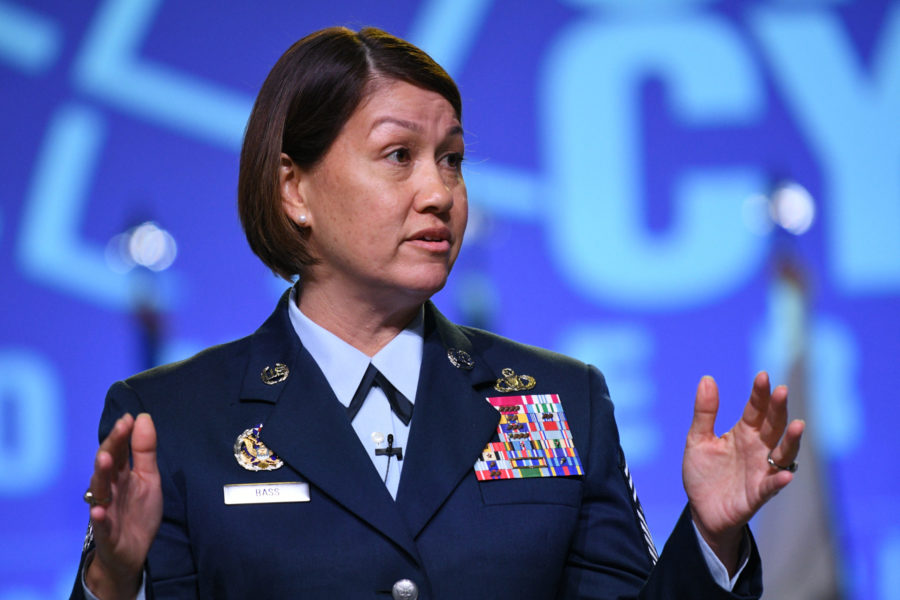The U.S. military is at an inflection point, and if it fails to adapt to the current threat environment, it very well could lose the next fight. And while new platforms such as the B-21 will play a critical role in competing, deterring, and winning in a high-end fight, it is U.S. Airmen who are the true secret weapon, Chief Master Sgt. of the Air Force JoAnne S. Bass said.
“We are indeed at an inflection point in history where the choices that we make today will have a lasting impact on the world that we have tomorrow, and every Airman needs to know that,” Bass said during her keynote address at AFA’s Air, Space & Cyber Conference on Sept. 20. “More importantly, we need to know what’s at stake if we just simply stay the course. We are serving in a time where we don’t have time for spectators. This is a time for all of us to step into the arena and to get to work.”
Like the other Air Force and Space Force leaders speaking at the conference, Bass cautioned that time is running out. China, she said, is wrapping up its marathon and is now sprinting to the finish line to claim what it believes to be its “rightful position as the world’s dominant power”—a title it intends to hold by 2049.
“They seek to create a world where America as a global power is a distant memory and where the rules of power are set by China,” she said. “And today we are in the last 30 years of China’s 100-year marathon, and under the leadership of Chairman Xi, they are sprinting to the finish line, because they think we are too weak, and broken politically, economically, and militarily to stop them.”
That is why it’s critical that every Airman not only understand the threat but also their role in deterring and defeating potential adversaries, Bass said. China is not only focused on defeat, it wants to break the United States’ will to fight—and will do whatever it takes to make that happen.
“They don’t feel bound by rules, laws, or norms that govern warfare,” she said. “This requires us to change our way of thinking and how we prepare our Airmen for the future. It is what is driving us to refocus our readiness efforts from contingency operations to a future high-end fight. Again, every Airman needs to understand that future conflict will look very different from what we have seen in the past 20 to 30 years. It will span across multiple domains, using any and all advantages and tactics on both military and non-military targets. The high-end fight that we must prepare for could be unlike anything we have ever faced in history, and it will require us to accelerate the change we need today to win tomorrow.”
The service last spring released a series of core competencies expected of all Airmen, such as job proficiency and adaptability, that will serve as the roadmap to empowerment, Bass said. These skills will serve as the foundation of the future force, so Airmen will be able to competently execute the mission, lead at all levels, manage resources, and improve their units.
“We must trust and empower them to do so from the most junior Airmen all the way up because it’s our Airmen, our Airmen, that remain our most competitive advantage over any adversary that we may have,” Bass said.
